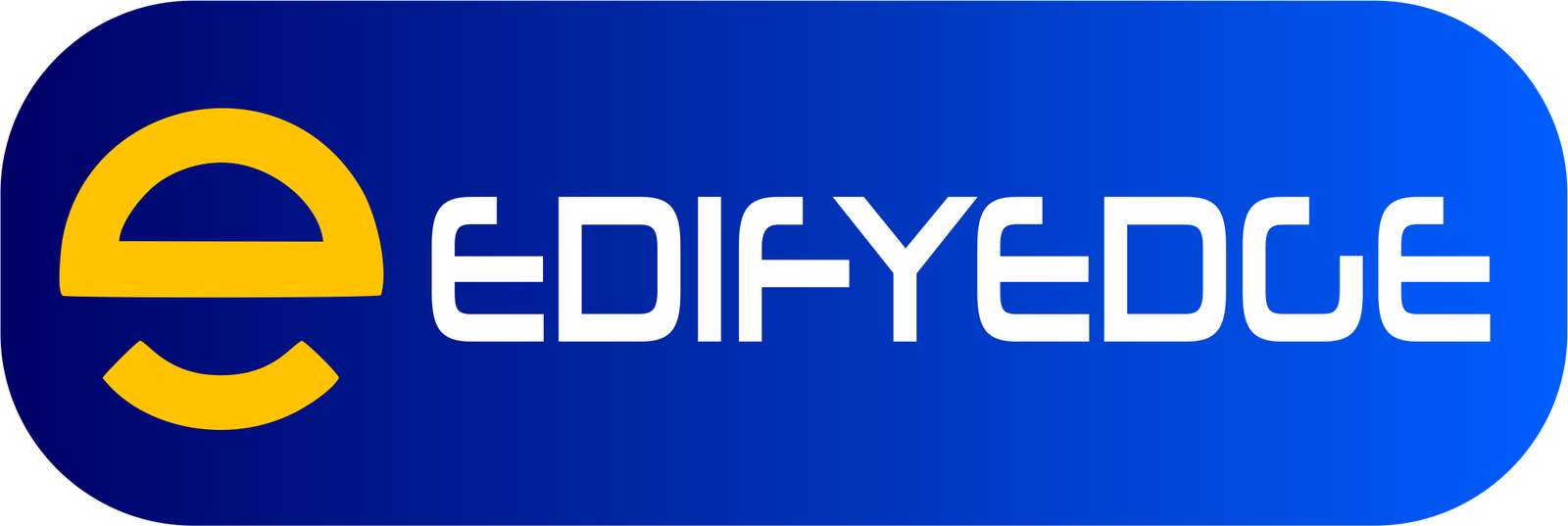What is a Chase Business Loan?
A Chase business loan is a financing product offered by JPMorgan Chase Bank to small and medium-sized businesses. The purpose of these loans is to provide capital for various business needs, such as expanding operations, purchasing equipment or inventory, refinancing existing debt, or covering operational expenses.
Chase offers several types of business loans, including term loans, lines of credit, and commercial real estate loans. Each loan type is designed to cater to different business requirements and financial situations.
Eligibility Criteria for Chase Business Loans
To be eligible for a Chase business loan, your business must meet certain criteria set by the bank. These requirements are designed to assess the creditworthiness and financial stability of your business, ensuring that you have the capacity to repay the loan.
Business Age: Chase typically prefers to lend to established businesses that have been operating for at least two years. This requirement helps the bank evaluate the track record and performance of your business over time.
Annual Revenue: Chase has minimum annual revenue requirements that vary depending on the type of loan you’re applying for. Generally, they expect businesses to have a consistent and substantial revenue stream to demonstrate their ability to make loan payments.
Credit Score: Your personal and business credit scores play a crucial role in determining your eligibility for a Chase business loan. The bank typically requires a credit score of 680 or higher (on a scale of 300 to 850) for most loan products. A strong credit score indicates your responsible credit management and lower risk of default.
Collateral: Depending on the loan amount and type, Chase may require you to provide collateral as security for the loan. Collateral can include business assets such as real estate, equipment, inventory, or accounts receivable. The value of the collateral should be sufficient to cover the loan amount in case of default.
Financial Statements:
Chase will likely request financial statements, including income statements, balance sheets, and cash flow statements, to evaluate your business’s financial performance and overall health. These documents help the bank assess your ability to generate sufficient cash flow to repay the loan.
Business Plan: For larger loan amounts or specific loan types, Chase may require a comprehensive business plan that outlines your company’s goals, strategies, and projected financial performance. A well-crafted business plan demonstrates your commitment to the success of your business and your ability to manage it effectively.
It’s important to note that Chase’s eligibility criteria may vary depending on the specific loan product, industry, and other factors. It’s always advisable to consult with a Chase representative or visit their website for the most up-to-date and accurate information regarding their lending requirements.
Applying for a Chase Business Loan: A Step-by-Step Guide
To apply for a Chase business loan, you’ll need to follow a straightforward process and provide the necessary documentation. Here’s a step-by-step guide to help you navigate the application process:
-
Determine Your Loan Needs: Before applying, assess your business’s financial requirements and decide on the loan amount and purpose. Chase offers various loan products, including term loans, lines of credit, and equipment financing, so determine which option best suits your needs.
-
Gather Required Documentation: Chase will require you to provide specific documents to evaluate your loan application. These typically include:
- Business tax returns for the past two years
- Personal tax returns for the past two years (for sole proprietors and partnerships)
- Financial statements (balance sheet, income statement, and cash flow statement)
- Business plan or executive summary
- Legal documents (articles of incorporation, operating agreements, etc.)
- Personal and business bank statements
- Proof of collateral (if applicable)
-
Check Your Eligibility: Chase has specific eligibility criteria for its business loans. Generally, you’ll need to have been in business for at least two years, have a good credit score (typically above 680), and demonstrate sufficient cash flow to repay the loan.
-
Apply Online or In-Person: You can apply for a Chase business loan online through their website or by visiting a local Chase branch. The online application process is often faster and more convenient, but you may prefer the personal touch of an in-person application if you have complex financial situations or require guidance.
-
Provide Additional Information: After submitting your initial application, a Chase loan officer may request additional information or documentation to further evaluate your loan request. Be prepared to provide any requested information promptly to keep the process moving forward.
Review and Accept Loan Terms:
-
If your loan application is approved, Chase will present you with the loan terms, including the interest rate, repayment schedule, and any collateral requirements. Carefully review the terms and conditions before accepting the loan offer.
-
Close the Loan: Once you’ve accepted the loan terms, Chase will guide you through the final steps to close the loan. This may involve signing loan documents, providing additional information or documentation, and making any required down payments or fees.
Throughout the process, Chase typically aims to provide a decision within 5-10 business days for most loan applications. However, the timeline can vary depending on the complexity of your application and the completeness of the documentation provided.
Interest Rates, Fees, and Costs of Chase Business Loans
Chase offers various business loan products with competitive interest rates and fees. For term loans, the annual percentage rates (APRs) typically range from 6% to 24%, depending on factors like your business’s creditworthiness, loan amount, and repayment term. These rates are generally in line with industry averages for similar loan products.
In addition to interest rates, Chase charges origination fees on some of its business loans. These upfront fees can range from 0.5% to 2% of the loan amount, which is a standard practice among lenders to cover the costs of processing and underwriting the loan.
For lines of credit, Chase may charge an annual fee, typically ranging from $95 to $300, depending on the credit limit and type of account. This fee is waived for the first year on some products.
It’s important to note that Chase may also require borrowers to pay additional fees, such as late payment fees, prepayment penalties (if applicable), and fees for services like wire transfers or account maintenance.
Overall, Chase’s interest rates and fees are competitive when compared to other major banks and alternative lenders in the industry. However, it’s always advisable to carefully review the specific terms and conditions of any loan offer and compare them with other options to ensure you’re getting the best deal for your business.
Repayment Terms for Chase Business Loans
Chase offers flexible repayment terms for its business loans, allowing borrowers to choose the loan term and payment schedule that best fits their cash flow and financial situation. Loan terms typically range from 1 to 7 years, with longer terms available for certain types of loans or larger loan amounts.
Borrowers can choose between monthly or bi-weekly payment schedules, with the latter option resulting in slightly lower overall interest costs due to more frequent payments. Chase also offers interest-only payment options for a set period, allowing businesses to manage their cash flow more effectively during the early stages of the loan.
In terms of prepayment penalties, Chase generally does not charge fees for paying off the loan early. This flexibility allows businesses to refinance or pay off the loan without incurring additional costs, should their financial situation improve or they secure better loan terms elsewhere.
It’s important to note that repayment terms may vary depending on the specific loan product, loan amount, and the borrower’s creditworthiness. Borrowers should carefully review the loan agreement and discuss their repayment options with a Chase representative to ensure they understand the terms and conditions fully.
Using Chase Business Loan Funds
Chase business loans offer flexible financing that can be used for a variety of purposes to support the growth and operations of your company. One of the primary advantages of these loans is the permitted uses of the funds, allowing you to allocate the capital where it’s needed most. Here are some common ways businesses utilize Chase business loan funds:
Working Capital: Maintaining a healthy cash flow is crucial for any business, and a Chase business loan can provide the necessary working capital to cover daily expenses, manage inventory, pay employees, and bridge gaps between accounts receivable and payable. This influx of funds can help you navigate seasonal fluctuations, take on new projects, or simply ensure smooth operations.
Equipment Financing: Whether you need to replace aging machinery, upgrade technology, or expand your equipment arsenal, Chase business loans can finance these essential purchases. Having access to the latest tools and equipment can boost productivity, efficiency, and competitiveness, ultimately driving growth and profitability.
Real Estate Purchases: For businesses looking to acquire commercial property, such as office space, retail locations, or manufacturing facilities, Chase business loans can serve as a powerful financing solution. Owning your business premises can provide long-term stability, equity buildup, and the ability to customize the space to your specific needs.
Expansion and Renovation: As your business grows, you may need to expand your physical footprint, renovate existing facilities, or open new locations. Chase business loans can fund these expansion initiatives, allowing you to meet increasing demand, enter new markets, or enhance your customer experience.
By understanding the permitted uses of Chase business loan funds, you can strategically allocate the capital to address your company’s most pressing needs and seize opportunities for growth and development.
Advantages of a Chase Business Loan
Chase offers competitive rates and flexible terms on its business loans, making it an attractive option for entrepreneurs and small business owners seeking financing. One of the key advantages is the ability to tailor the loan to your specific needs, whether you require funds for expansion, equipment purchases, or working capital.
Additionally, Chase provides a suite of complementary banking services that can streamline your financial operations. By consolidating your business banking with Chase, you can enjoy seamless integration between your loan and other accounts, facilitating efficient cash management and forecasting.
Moreover, Chase’s extensive network of branches and ATMs nationwide ensures convenient access to banking services, enabling you to manage your finances on-the-go. This level of accessibility can be invaluable for businesses with multiple locations or those that operate across different regions.
Alternative Lending Options for Businesses
Securing financing is a crucial step for businesses, whether they are just starting out or looking to expand. While traditional bank loans from institutions like Chase are a popular option, there are several alternative lending options available that entrepreneurs should consider.
Online lenders have emerged as a convenient and accessible source of funding for businesses. These lenders typically have a streamlined application process and can provide funds more quickly than traditional banks. However, it’s important to carefully review the terms and interest rates, as they can be higher than those offered by banks.
The Small Business Administration (SBA) offers various loan programs designed specifically for small businesses. SBA loans are partially guaranteed by the government, making them less risky for lenders and potentially offering more favorable terms for borrowers. These loans can be used for a variety of purposes, including working capital, equipment purchases, and real estate acquisitions.
Crowdfunding platforms have also gained popularity as a way for businesses to raise funds from a large pool of individual investors. This approach can be particularly useful for startups or businesses with a compelling story or innovative product. However, it’s important to understand the platform’s rules and regulations, as well as the potential risks and rewards associated with crowdfunding.
While Chase business loans may be a suitable option for some businesses, it’s essential to explore and compare alternative lending options to find the best fit for your specific needs and circumstances. Each option has its own advantages and disadvantages, and the right choice will depend on factors such as the amount of funding required, the intended use of the funds, and the business’s creditworthiness and financial standing.
Overview of Chase’s Business Banking Services
Chase offers a comprehensive suite of business banking services designed to meet the diverse needs of entrepreneurs and business owners. In addition to providing business loans, Chase provides a range of complementary products and services that can streamline financial operations and support business growth.
One of the core offerings from Chase is their business checking accounts, which come with various features tailored to different business sizes and transaction volumes. These accounts provide convenient access to funds, online banking tools, and integrated services like merchant services for accepting payments and cash management solutions for optimizing cash flow.
Chase’s merchant services allow businesses to accept multiple payment types, including credit and debit cards, mobile payments, and online transactions. These services integrate seamlessly with Chase’s business checking accounts, enabling streamlined reconciliation and reporting. Additionally, Chase offers point-of-sale systems and e-commerce solutions to facilitate secure and efficient payment processing.
For businesses with complex cash management needs, Chase provides robust cash management tools. These tools include services like automated clearing house (ACH) payments, wire transfers, remote deposit capture, and fraud prevention measures. By leveraging these tools, businesses can optimize their cash flow, reduce manual processes, and enhance financial control.
Overall, Chase’s business banking services complement their business loan offerings by providing a comprehensive financial ecosystem. With checking accounts, merchant services, and cash management tools, businesses can streamline their financial operations, facilitate transactions, and manage their cash flow more effectively, ultimately supporting their overall growth and success.
Share Customer Reviews and Testimonials
Sharing customer reviews and testimonials from businesses that have obtained Chase business loans can provide valuable insights and help potential borrowers understand the experiences of others. Positive reviews can highlight the efficient application process, competitive interest rates, and responsive customer service that Chase offers. Negative reviews may shed light on areas where Chase could improve, such as stricter eligibility criteria or longer processing times.
Testimonials from satisfied customers can showcase how a Chase business loan helped them expand their operations, purchase new equipment, or weather economic downturns. Real-life examples of how the funds were utilized and the positive impact on the business can be powerful endorsements for prospective borrowers.
It’s important to include a diverse range of testimonials from businesses of various sizes, industries, and locations to demonstrate Chase’s ability to cater to different business needs. Highlighting success stories from both established companies and startups can provide a well-rounded perspective.
When sharing customer reviews and testimonials, it’s essential to maintain transparency and authenticity. Providing full names, business names, and locations can add credibility to the testimonials. Additionally, including video or audio testimonials can further enhance the personal connection and allow potential borrowers to hear directly from satisfied customers.
Applying for a Chase Business Loan Online
Applying for a Chase business loan online is a convenient and streamlined process that allows you to initiate your loan application from the comfort of your own office or home. Here’s a step-by-step guide on how to apply for a Chase business loan online:
-
Gather the Required Documents: Before starting the online application process, ensure you have all the necessary documents ready. These typically include your business’s financial statements, tax returns, and any other relevant financial information that demonstrates your business’s financial health and ability to repay the loan.
-
Visit the Chase Business Lending Website: Navigate to the Chase business lending website and look for the section dedicated to business loans or financing options.
-
Select the Loan Type: Chase offers various business loan products, such as term loans, lines of credit, and commercial real estate loans. Choose the loan type that best suits your business needs and financial requirements.
-
Complete the Online Application: Once you’ve selected the loan type, you’ll be prompted to complete an online application form. This form will require you to provide detailed information about your business, including its legal structure, ownership details, financial information, and the purpose of the loan.
Submit Supporting Documents:
-
During the application process, you’ll be asked to upload or submit the required supporting documents, such as financial statements, tax returns, and any other relevant documentation.
-
E-Sign and Submit: After carefully reviewing the information you’ve provided, you’ll have the opportunity to electronically sign the application. Once you’ve e-signed, you can submit the application for Chase’s review and consideration.
It’s important to note that Chase may have specific requirements or considerations for online applications, such as minimum credit scores, time in business, or annual revenue thresholds. Be sure to review the eligibility criteria and loan terms carefully before applying.
Throughout the online application process, Chase may request additional information or documentation to support your loan request. Promptly providing the requested information can help expedite the approval process.
Chase Business Loan Calculator
Chase’s business loan calculator is a powerful online tool designed to help entrepreneurs and business owners estimate their potential loan payments and overall costs. This user-friendly calculator allows you to input various loan details, such as the desired loan amount, interest rate, loan term, and any applicable fees. By providing these key parameters, the calculator will generate accurate projections of your monthly payments, total interest paid over the loan term, and the overall cost of borrowing.
The calculator’s intuitive interface makes it easy to experiment with different scenarios, enabling you to assess the financial impact of various loan options. This can be particularly valuable when evaluating the feasibility of a business expansion, equipment purchase, or any other investment that requires external financing. By adjusting the loan amount, term, or interest rate, you can quickly see how these variables affect your monthly cash flow and long-term financial commitments.
Moreover, the Chase business loan calculator can help you prepare a comprehensive loan application by providing a clear understanding of the associated costs and repayment obligations. This knowledge can be invaluable when negotiating with lenders or presenting your business case to potential investors or partners.
Overall, Chase’s business loan calculator empowers you with the necessary information to make informed decisions about your financing needs, ultimately contributing to the success and growth of your business.
Frequently Asked Questions About Chase Business Loans
Chase offers a variety of business loans to cater to the diverse needs of entrepreneurs and small business owners. Here are some frequently asked questions about Chase business loans, covering credit requirements, loan amounts, and the approval process.
What are the credit requirements for a Chase business loan?
Chase typically requires a minimum credit score of 680 for most of its business loan products. However, this can vary depending on the specific loan type and the overall creditworthiness of your business. Chase will also consider your business’s revenue, cash flow, and financial history when evaluating your loan application.
What types of business loans does Chase offer?
Chase offers a range of business loans, including term loans, lines of credit, commercial real estate loans, and equipment financing. The loan amounts and repayment terms vary depending on the loan product and your business’s qualifications.
How much can I borrow with a Chase business loan?
The loan amount you can borrow from Chase depends on several factors, such as the type of loan, your business’s revenue, and creditworthiness. Generally, Chase offers term loans ranging from $10,000 to $500,000, while lines of credit can go up to $500,000. For commercial real estate loans and equipment financing, the loan amounts can be higher based on the value of the collateral.
What is the approval process for a Chase business loan?
The approval process for a Chase business loan typically involves the following steps:
-
Application: You’ll need to complete a loan application, providing detailed information about your business, financial statements, and any collateral or guarantees.
-
Documentation: Chase will require you to submit various documents, such as business tax returns, financial statements, and legal documents, to verify the information provided in your application.
-
Credit Check: Chase will perform a credit check on both your personal and business credit histories.
-
Underwriting: Chase’s underwriting team will review your application, documentation, and credit reports to assess the risk and determine your eligibility for the loan.
-
Approval or Denial: If approved, Chase will provide you with the loan terms and conditions. If denied, they will explain the reasons for the denial and may provide guidance on how to improve your chances of approval in the future.
The approval process can take several weeks, depending on the complexity of your application and the type of loan you’re seeking.



